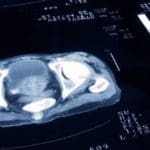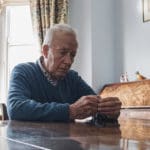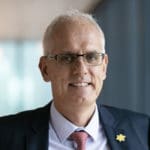Type: Prostate cancer

Professor Selth and his team have developed a new CDK inhibitor, called AU2-94. Preliminary evidence suggests that AU2-94 effectively blocks growth of breast and prostate cancer cells without causing significant toxicity.

Dr Koay and her team are developing a novel type of immunotherapy which targets a specialised subset of T-cells which possess the potential to attack cancer more effectively than existing T-cell immunotherapies.
Dr Pidsley’s research will lead to the development of a novel sensitive epigenetic test, to accurately determine tumour risk, particularly for tumours that are inaccurately classified using current clinical tools.
Professor Holst and Dr Centenera’s teams aim to develop a new drug treatment strategy to overcome resistance to hormone therapy in prostate cancer.

Alongside a clinical trial of ribociclib for prostate cancer, Professor Butler and her team will identify biomarkers that can be used to identify which patients this new drug is likely to benefit.

Cancer Council NSW researchers have found that over one third of long-term Australian prostate cancer survivors need more supportive care than they are getting.

This project will investigate how these vital pain suppressing neurons control pain in advanced breast and prostate cancer.

This project will advance the understanding of how prostate cancer progresses and could lead to a new much-needed diagnostic approach.

This project will focus on developing adaptive radiotherapy for locally advanced lung, prostate and oligometastatic cancer.

This project aims to show that certain nerve growth factors (proteins that stimulate the growth of nerves) are effective biomarkers for prostate cancer.